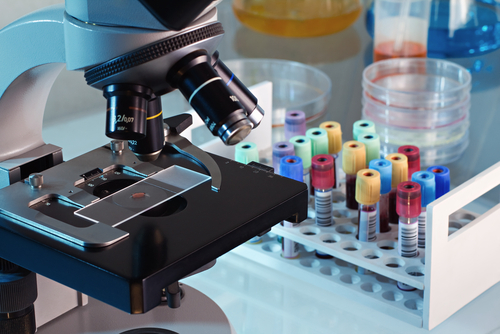New indicator may predict prognosis in renal cancer
M3 Global Newsdesk Mar 23, 2018
The acetyl-CoA synthetase (ACSS2) protein is highly expressed in renal cell carcinoma (RCC) and is indicative of a poor prognosis, according to a study published in Urologic Oncology.

A considerable proportion of RCC cases have high expression of ACSS2 protein, suggesting the relationship of high-ACSS2 expression and poor prognosis in RCC.
The retrospective study was designed to investigate ACSS2 expression and the relationship to survival in patients with RCC. It was led by Shaojin Zhang, MD, from Zhengzhou University in Henan Province, China.
Results are conflicting regarding the role of mitochondrial ACSS2 expression and its function in cancer. Prior research has shown that in breast cancer and glioblastoma, ACSS2 knockdown inhibits tumor growth in vivo. In addition, ACSS2 overexpression contributes to aggressive growth and worse prognosis.
In contrast, lower ACSS2 expression is associated with aggressive tumor behavior and is an independent factor predicting worse prognosis in stomach and colorectal cancers.To determine the role of ACSS2 in renal carcinogenesis and cancer progression, the investigators evaluated ACSS2 expression in 198 RCC tissue samples, and analyzed the clinical and pathological correlation and prognostic relevance.
Patients with clear cell RCC who underwent nephrectomy were selected, and clinicopathological information was collected, including age, gender, tumor size and stage, Fuhrman grade, presence of histological tumor necrosis, Eastern Cooperative Oncology Group performance status (ECOG PS), and the University of California, Los Angeles, Integrated Staging System (UISS) score.
Tumors were staged based on radiograph reports and postoperative pathological results according to the 2010 American Joint Committee on Cancer (AJCC) tumor-node-metastasis (pTNM) classification. Follow-up with physical examination, laboratory studies, chest imaging, and abdominal ultrasound or CT scan was done every three months for the first five years and annually thereafter.
Overall survival (OS) was calculated from the date of nephrectomy to the time of death or the most recent follow-up; recurrence-free survival (RFS) was calculated to the time of recurrence (local or distant metastases) and was assessed only in patients without distant metastasis (n=189).
Using immunohistochemistry (IHC), the researchers compared the ACSS2 protein expression levels in four RCC cell lines, as well as tissue from 21 RCC patients. Results showed that ACSS2 expression was elevated at the transcript and protein level in human RCC tissues and nontumor tissues.
To determine the distribution and clinical significance of ACSS2 in RCC, expression pattern of ACSS2 was analyzed in an additional 198 pairs of specimens using IHC. Tumors with high-ACSS2 expression were more likely to have advanced T stage (P=0.008), advanced AJCC stage (P=0.037), and high-UISS risk category (P=0.009), indicating that high ACSS2 expression correlates with progression and disease stage.
The researchers reported that ACSS2 expression predicted poor outcome in RCC patients. The RFS rates in the cohort (n=189) at 3-, 5-, and 7-years were 73%, 65%, and 52%, respectively. The low-ACSS2 group had significantly longer median RFS time than the high-ACSS2 group (7.7 years vs 5.5 years).
Various assays (tetrazolium dye, cell migration and invasion, and wound healing assays) demonstrated that silencing ACSS2 in RCC cells reduced their proliferation, migration, and invasion in vitro, and that overexpression of ACSS2 had the opposite effect.
Moreover, ACSS2 silencing inhibited activation of PI3K/Akt, an important pathway implicated in cancer metastasis, indicating that ACSS2 may be involved in cancer cell progression in RCC.
“A considerable proportion of RCCs have high expression of ACSS2 protein, suggesting the relationship of high-ACSS2 expression and poor prognosis in RCC,” the authors concluded.
Furthermore, ACSS2 expression can be used to further stratify RCC patients in lower pTNM stage.
The investigators recommended that patients with early RCC with high-ACSS2 expression might need adjuvant therapy or more proactive follow-up after surgery, even if they appear to be low-risk based on classic clinicopathologic features.
To read more about this study, click here
This story submitted by Robyn Boyle and is a part of our Global Content Initiative, where we feature selected stories from our Global network which we believe would be most useful and informative to our doctor members.
-
Exclusive Write-ups & Webinars by KOLs
-
Daily Quiz by specialty
-
Paid Market Research Surveys
-
Case discussions, News & Journals' summaries